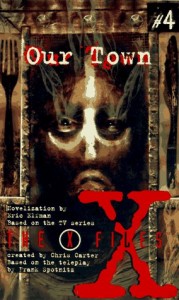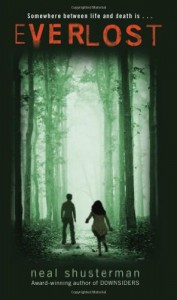I used to be a junky. I know, shocking, but I was addicted to the Big Sur Writers Workshop put on by the Henry Miller Library and the Andrea Brown Literary Agency. I’d go every year. If I missed a year, I’d start jonesing. I’d read Henry Miller and spend hours on Andrea Brown’s website, but I still got the shakes.
 And it was at Big Sur that I met Eric Elfman, an intrepid writer and brilliant writing coach. Intrepid. You wanna know the definition? Fearless, daring, bold. Eric has been writing and publishing for at least sixteen years and has been helping other writers do the same. You can find his author website here and his coaching website here.
And it was at Big Sur that I met Eric Elfman, an intrepid writer and brilliant writing coach. Intrepid. You wanna know the definition? Fearless, daring, bold. Eric has been writing and publishing for at least sixteen years and has been helping other writers do the same. You can find his author website here and his coaching website here.
I roped him into talking with me about all things writerly and so here we go.
Aaron: So, Eric, you’ve lived in L.A. pretty much your whole life. Do you think that’s affected what you write, how you write, how much moisturizer you use, and how you coif your hair? I mean, it’s L.A. Image is everything.
Eric: Ha! That’s so true about L.A.! Image IS everything — my wife even made me get Crest White Strips because everyone in L.A. has such white teeth! But has living in a major city affected my writing? I’d never really thought about it before, but nearly all of my stories do have urban settings. For the YA horror novel I’m working on, I reconstructed in my mind the high school that I went to, near LAX. And I bet living in a place where image matters so much has led to my interest in fantasy, which is all about poking beneath the everyday surface of things. Thanks, Aaron, for making me look at my own work with fresh eyes!
Aaron: Let me set up a scenario. On a Tuesday, you work on someone else’s manuscript for four hours. The sun is shining, the waves are rolling into the Santa Monica pier, the hot chicks are roller skating down the bike path. Then on Wednesday, you spend four hours working on your own manuscript. Will you feel the same on Wednesday that you did on Tuesday? More tired or less? More creatively satisfied or less?
Eric: The writing and coaching, although related, are essentially two different skill sets, and while they are both satisfying, they do use different parts of my brain, and different levels of energy. Working on my own manuscript, coming up with the story idea, executing it, developing and maintaining the narrative voice, pacing the scenes, motivating the characters, increasing the tension, keeping the conflict front and center, etc., etc., all the things you have to do when writing a story — can be exhausting! It’s great, but it can really wipe me out. As I always used to say (and then I found out Doug Adams said the same thing), “I don’t enjoy writing, I enjoy having written.” The coaching, on the other hand, is almost always fun! Think about it: I get to read someone else’s pages and tell them all the work that they need to do. (And the best part is that I can bring their manuscripts and my pencil down to the beach and sip a latte near the bike path! Harder to do with a laptop!)
Aaron: I know one writing coach that thinks all bad writing can be boiled down to P.O.V. problems. Would you agree? If you had to choose, which one aspect of bad writing do you think all bad/newbie writers have in common?
Eric: POV is a big issue, but the main problem I find again and again in the manuscripts I read are passive main characters. While every manuscript is unique, and each has its own unique set of issues, very often I find protagonists who float through their story, observing what’s going on, but not going after anything. If they do want something, they get it without much fuss. There’s no drama, no tension. Writers have to remember their main character isn’t a passenger being carried along by events — the protagonist has to drive the story. The essence of drama is this: your protagonist wants something, and somebody — or some thing — stands in their way. How your character tackles that obstacle and the others that follow — is the story.
Aaron: Magic wand time. If you could take a magic wand and magically give yourself ultimate mastery over one part of the writer’s craft, which would it be? Chose an aspect (for example, character, or plot, or diction) and explain your answer fully. Inquiring minds wanna know.
Eric: If I could magically make one change in the way I work, I’d like to write stronger first drafts. Usually, my first draft is a mess — I’m thinking much faster than I can type (and I type pretty fast!), so I’m just throwing down huge swaths of “telling” — first this happens, then that, using Word’s “Comment” feature to jot down my intention for the scene. My dialogue is very rudimentary, I’m just trying to get down the core ideas and not worrying about the words. (Have you heard the phrase “placeholder dialogue”? I’m the master of that!) When I’m done, I go back and revise revise revise, throwing away entire scenes, rearranging sequences, rewriting pages of dialogue — which is fine, a lot of writers work this way. I see my first draft as a lump of clay — much easier to face than a blank page! But when I think of all the time I spend revising, I know I could use my time more efficiently.
Aaron: Okay, let’s say you could wave your magic wand over the writers you coach. What aspect would you want your newbie writers to master first? I am showing remarkable self-restraint by not answering my magic wand questions. Maybe I’ll sneak in an answer at the end.
Eric: Well, as I said above, the biggest issue in most of the manuscripts I read is a passive main character — but that’s actually pretty easy to explain to writers, and show them ways to make their characters stronger, more active — mainly through the choices the characters make. Even pacing issues, probably the second most common weakness I see in manuscripts, can be resolved by going through the story beat by beat and discussing the structure.
But by far the most difficult issue to help writers get a handle on is a weak narrative voice. An agent I know once said the first thing an editor looks at is the narrative voice. If it’s a first person pov, the reader can fall in love with the character through the voice; if it’s in third person, the strength of the voice can make up for a multitude of sins (or at least weaknesses) in story or logic. I always like to give my coaching clients specifics, and this is by far the trickiest problem to coach a writer through, because it pervades the writing. In the absence of a magic wand (which would be so nice to have), I work with writers to develop their voice — usually it means providing more than mere description of the action, it means taking the writing to a deeper level — showing us what the character is feeling, not just what they’re doing. Often it means imagining the scene more fully before the writer writes it. Sometimes it means raising the stakes, or sometimes it just means adding more sensory information to the scene — what does the room smell like? What does the glass feel like? What does the wine taste like — and how does it make the character feel?
Aaron: Okay, so suddenly I have a magic wand and I cast a spell on you. I curse you to only write novels or screenplays, but not both. Which would you choose and why? And my curse is pretty nice, given that you have a choice.
 Eric: Curse you, Aaron Ritchey! What a dilemma that would be, to choose only one. But since I write both, it’s only fair to ask. Okay, so here’s how it breaks down — screenplays and novels are very different animals, and they have different challenges. Writing for the screen is all about the surface — what the characters say and do. Writing novels is all about the internal lives of the characters — what they think and feel. (One of my favorite writing assignment came some years ago, when Harper Collins hired me to write novelizations of three X-Files episodes. Breaking them down gave me a great insight into the stark differences between writing for film/TV and writing novels.)
Eric: Curse you, Aaron Ritchey! What a dilemma that would be, to choose only one. But since I write both, it’s only fair to ask. Okay, so here’s how it breaks down — screenplays and novels are very different animals, and they have different challenges. Writing for the screen is all about the surface — what the characters say and do. Writing novels is all about the internal lives of the characters — what they think and feel. (One of my favorite writing assignment came some years ago, when Harper Collins hired me to write novelizations of three X-Files episodes. Breaking them down gave me a great insight into the stark differences between writing for film/TV and writing novels.)
I do enjoy writing screenplays — but one of the challenges in screenwriting is telling a complete, and completely satisfying, story in a mere 100 – 120 pages, the conventional length of a screenplay these days. And there’s a lot of white space on each page. I sometimes compare screenwriting to writing haiku — what’s important is often left unsaid. Another challenge, since the writer doesn’t have the luxury of revealing the characters’ innermost thoughts and feelings in words, is to convey character through the action. On the other hand, there is so much freedom, when your main character crosses the room, to be able to simply write, “He crosses the room,” instead of describing, in intimate detail, how he feels about crossing the room, his motivation for crossing the room, what’s going through his mind every step of the way, the coolness of the doorknob as it touches his palm, etc., etc.
 Of course, there’s also the business side to consider — as hard as is to get a book published, that hurdle is much, much higher when trying to get a film produced. (I’m speaking of Hollywood films — nowadays anyone can get their hands on professional filmmaking equipment and produce a low-budget film on their own.) My writing partner and I sold an original pitch based on a true story, CLASS ACT, to Revolution Studios. We wrote the screenplay and the project was set up at Dreamworks with Halle Berry attached to star. However, now it’s completely out of our hands, and we’re still waiting to see if it gets made — and that’s one of the dilemmas of being a screenwriter. As a novelist, you own the copyright to your work. As a screenwriter, even if it’s your idea (as CLASS ACT was), you turn over all rights to the studio that purchases it.
Of course, there’s also the business side to consider — as hard as is to get a book published, that hurdle is much, much higher when trying to get a film produced. (I’m speaking of Hollywood films — nowadays anyone can get their hands on professional filmmaking equipment and produce a low-budget film on their own.) My writing partner and I sold an original pitch based on a true story, CLASS ACT, to Revolution Studios. We wrote the screenplay and the project was set up at Dreamworks with Halle Berry attached to star. However, now it’s completely out of our hands, and we’re still waiting to see if it gets made — and that’s one of the dilemmas of being a screenwriter. As a novelist, you own the copyright to your work. As a screenwriter, even if it’s your idea (as CLASS ACT was), you turn over all rights to the studio that purchases it.
Aaron: Okay, Eric, I am envious by nature. I mean, I envy everyone. Do you ever get jealous when one of your authors scores a big deal with a large house? Just thinking about someone else scoring a big deal with a large publishing house has me green.
Eric: Absolutely not! When one of the writers I’ve worked with actually sells their manuscript, that’s one of my proudest moments! It means that my feedback helped a writer achieve their goal. One of my clients recently sold a three-book series to one of the big publishers, and when she told me, I was delighted that her hard work paid off, and mine as well! And at her book launch party, she thanked her husband, her sons, and me. There is no feeling more satisfying. (Having said that, I wouldn’t object to being hired to write the screenplay when the film rights are sold!)
Aaron: You sold a trilogy of books to Hyperion, the Tesla’s Attic trilogy, with your writing partner. That whole writing partner thing astounds me. I’m not sure I could do it. But with you, how does your work as a writing coach help you deal with having a writing partner? Do you think it helps or hinders you?
 Eric: I think the most important thing when working with a writing partner is to be on the same wavelength. Neal and I have similar approaches to story and character and pretty much the same sense of humor (our one inviolable rule: if we can make the other person laugh, it goes in the book or screenplay). Sometimes we divide up chapters, work on them alone and swap them — but more often we’re in the same room, with one of us talking while the other is typing. We work out the story beats together, and then let it flow. I’m sure my coaching experience helps me when I read through pages we’ve worked on together — I can pick out pacing issues and story holes — but the most valuable thing I’ve found in working with a partner is that you’re not in it alone. Writing is generally such a solitary pursuit. When I’m hard at work with Neal, it feels more like we’re goofing off! Sometimes we’ll spend four or six hours together, just laughing and talking — and somehow 12 pages get written.
Eric: I think the most important thing when working with a writing partner is to be on the same wavelength. Neal and I have similar approaches to story and character and pretty much the same sense of humor (our one inviolable rule: if we can make the other person laugh, it goes in the book or screenplay). Sometimes we divide up chapters, work on them alone and swap them — but more often we’re in the same room, with one of us talking while the other is typing. We work out the story beats together, and then let it flow. I’m sure my coaching experience helps me when I read through pages we’ve worked on together — I can pick out pacing issues and story holes — but the most valuable thing I’ve found in working with a partner is that you’re not in it alone. Writing is generally such a solitary pursuit. When I’m hard at work with Neal, it feels more like we’re goofing off! Sometimes we’ll spend four or six hours together, just laughing and talking — and somehow 12 pages get written.
Thanks so much, Eric!!!




